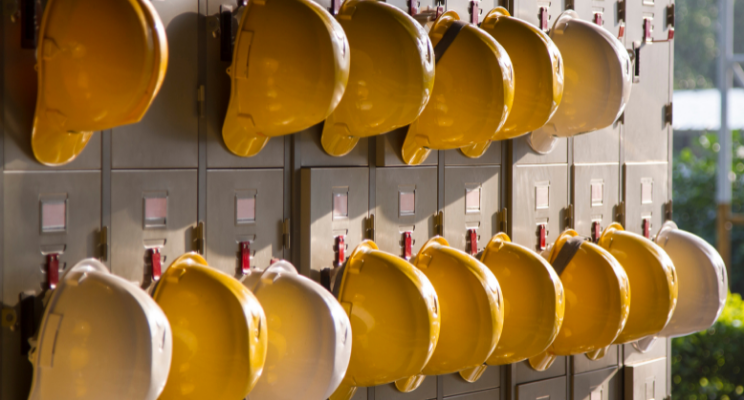A 2021 report from the HSE found that unfortunately, construction workers face significant risk in terms of their physical and mental health while at work.
Working towards a safer construction industry
We’re not alone. Other industries, such as agriculture, forestry and fishing share similar statistics, but we may now have reached a point where health and safety practices and technologies have advanced enough that we’re in a position to make serious inroads into improving safety for our workers.
So, what are the main risk factors involved in working on a construction site?
Risk Factors
Construction sites have a particular combination of inherent risk factors which make them potentially dangerous places to be.
Firstly, it’s just a big industry, employing huge numbers of people who are operating complex machinery, using tools, working with hazardous substances and, of course, working at height (45% of deaths in the sector result from falling from height).
While many other industries involve many of these risk factors, the way in which they are used within construction, combined with challenging environmental factors such as unpredictable weather, temperature, poor lighting, or limited visibility, and it’s easy to see how the risk factors multiply.
All of these risks have the potential to become more dangerous when ever-increasing pressure on deadlines and budgets results in conflicting demands, in particular ‘the need to speed up the process, compared with the need to do it safely’, as Eden Facades SHEQ Manager, Terry Box comments.
Emerging trends in health and safety
Mental wellbeing
Even before the pandemic, mental health was an issue that was steadily rising up the public agenda.
In 2017, the World Health Organisation reported a 13% rise in mental health conditions compared with the preceding decade, with such conditions typically having ‘a substantial effect on…work performance’. This resulted in a cost to the UK economy in general of between £33 and £42 billion a year, according to the government’s Thriving at Work report. Spool forward three years and, in 2020 alone, 17 million working days were lost due to mental health issues.
Stir in a pandemic, and the extra ramifications for mental health are undeniable, with the HSE warning that stress at work and worsening mental health are becoming ‘a health-and-safety crisis in workplaces,’ with an estimated two in five employees experiencing a deterioration in their mental health as a result of Covid-19.
In response, the HSE launched their Working Minds campaign at the end of last year to address precisely this issue, with a view to ensuring that ‘psychological risks are treated the same as physical ones in health and safety risk management.’
It’s a philosophy Eden Facades are completely in tune with.
Terry explains: ‘We should be working towards a culture where we all look out for each other. As health and wellbeing moves higher up the agenda, as an industry we are beginning to recognise the need for a better balance between the two and put more emphasis on health.’
Virtual training and new technology
Where traditional training typically involved generic presentations and videos, the emergence of VR technology and 4D modelling has allowed these to be replaced by training programmes where sites can be realistically navigated, and risk factors safely assessed.
Significantly this technology, originally developed for the HS2 project and set to be rolled out across the whole construction sector, imparts information in a way that has been shown to be four times easier to retain than with traditional training methods.
Similarly, advances in smart wearables and sensors are also at the forefront of new technology’s ability to help improve health and safety in the sector.
For example, sensors can immediately send an alert by detecting a change of orientation in the case of an on-site slip or trip, transmit location and call for help. Smart wearables such as vests can monitor workers’ activities, temperatures and working hours, detect hazard zones, as well as having call buttons for emergencies.
Looking ahead to the future, self-driving vehicles, computer-controlled manufacturing robots, drones and large-scale 3D printers are just a few of the technologies we could see emerging by 2057, according to a report by the Midwest Economic Policy Institute (MEPI)
At Eden Facades, we are fully engaged in furthering digital processes that were set up during the pandemic, and exploring how new technology can enhance our approach to all areas of our work, including health and safety.
To find out more about our health and safety processes, or to talk to us about an upcoming project, get in touch on 01268 744199 or email office@edenfacades.co.uk

